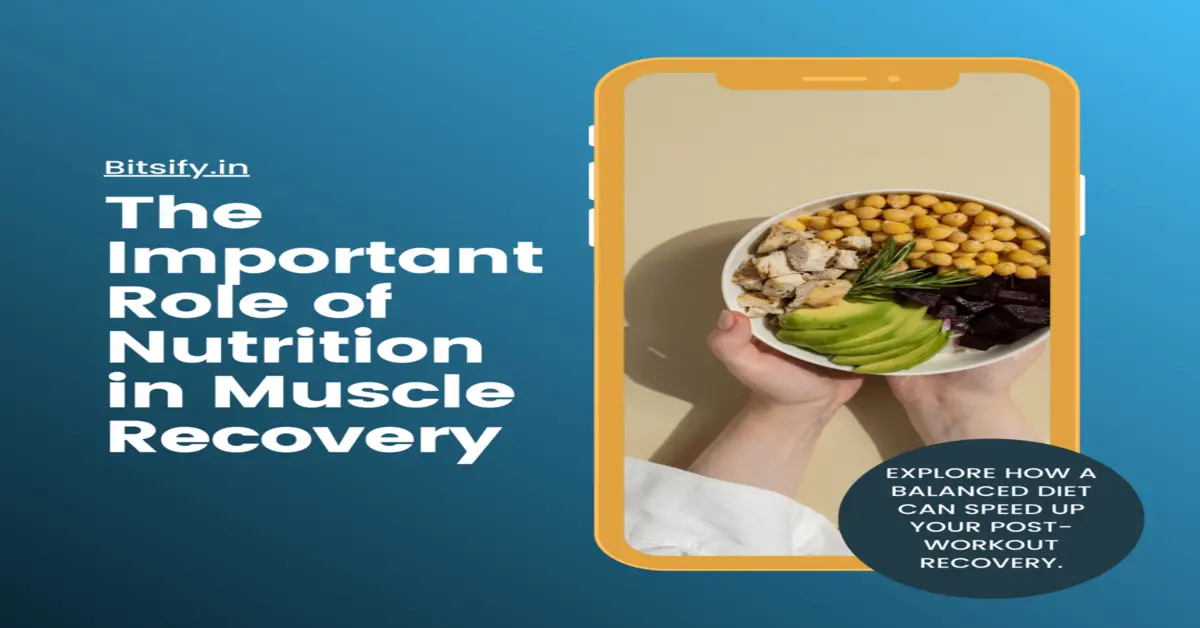In the pursuit of peak physical performance, understanding the intricate relationship between nutrition and muscle recovery is paramount. As we delve into the depths of this symbiotic connection, prepare to unlock the secrets that propel you towards faster, more efficient muscle recovery.
Table of Contents:
- The Significance of Muscle Recovery
- The Role of Nutrition in Muscle Recovery
3.1 Nutrients Essential for Muscle Repair
3.2 Timing Matters: Pre and Post-Workout Nutrition
3.3 Hydration and Muscle Recovery - Power Foods for Accelerated Muscle Recovery
4.1 Lean Proteins
4.2 Complex Carbohydrates
4.3 Omega-3 Fatty Acids
4.4 Antioxidant-Rich Foods - Supplements: Boosting Recovery to the Next Level
5.1 Protein Supplements
5.2 Branched-Chain Amino Acids (BCAAs)
5.3 Glutamine - Crafting the Ideal Post-Workout Meal
- Conclusion
- FAQs: Addressing Common Queries
The Significance of Muscle Recovery
Before we plunge into the depths of nutrition, it’s imperative to grasp the importance of muscle recovery. It’s during the recovery phase that muscles repair and grow, allowing you to push your limits during subsequent workouts. Poor recovery can lead to fatigue, increased risk of injury, and hindered performance.
The Role of Nutrition in Muscle Recovery
3.1 Nutrients Essential for Muscle Repair Proteins, carbohydrates, healthy fats, vitamins, and minerals form the nutritional pillars that support muscle repair. Adequate intake of these nutrients ensures that your body has the building blocks necessary for efficient recovery.
3.2 Timing Matters: Pre and Post-Workout Nutrition Optimizing your nutrition around workouts is crucial. Consuming a balanced meal or snack before and after exercise provides the energy and nutrients needed for both performance and recovery.
3.3 Hydration and Muscle Recovery Often underestimated, proper hydration plays a vital role in muscle recovery. Dehydration can impede nutrient transport to muscles and hinder the body’s ability to repair and rebuild.
Power Foods for Accelerated Muscle Recovery
4.1 Lean Proteins Chicken, fish, tofu, and legumes are excellent sources of lean proteins, promoting muscle repair without excess fat.
4.2 Complex Carbohydrates Whole grains, sweet potatoes, and quinoa provide a sustained release of energy, replenishing glycogen stores essential for recovery.
4.3 Omega-3 Fatty Acids Salmon, walnuts, and flaxseeds offer anti-inflammatory benefits, reducing muscle soreness and aiding recovery.
4.4 Antioxidant-Rich Foods Berries, dark leafy greens, and nuts combat oxidative stress, supporting the body’s recovery process.
Supplements: Boosting Recovery to the Next Level
5.1 Protein Supplements Whey protein, in particular, is a convenient and fast-absorbing protein source, ideal for post-workout recovery.
5.2 Branched-Chain Amino Acids (BCAAs) BCAAs, found in supplements or natural sources like eggs, support protein synthesis and reduce muscle soreness.
5.3 Glutamine An amino acid aiding muscle cell hydration, glutamine enhances recovery and immune function.
Crafting the Ideal Post-Workout Meal
Combine lean protein, complex carbohydrates, and a source of healthy fats for a well-rounded post-workout meal. Examples include grilled chicken with sweet potato and avocado or a protein smoothie with berries and oats.
Conclusion
In the dynamic interplay between nutrition and muscle recovery, adopting a holistic approach is the key to unlocking your body’s full potential. By fueling your muscles with the right nutrients at the right times, you pave the way for accelerated recovery, enabling you to conquer new fitness heights with each workout. Embrace the power of nutrition, and let your muscles thrive in the journey towards peak performance.
FAQs
1. How soon after a workout should I eat for optimal recovery?
Consume a balanced meal or snack within 30 minutes to an hour post-workout to maximize nutrient absorption and kickstart the recovery process.
2. Can I get enough nutrients from food alone, or are supplements necessary?
While a well-rounded diet is key, supplements can fill nutritional gaps and enhance recovery, especially for those with higher training intensities.
3. Can I rely solely on supplements for muscle recovery?
While supplements can be beneficial, a well-balanced diet should always be the foundation. Supplements are meant to complement, not replace, whole foods.
4. How much protein do I need for effective muscle recovery?
The recommended protein intake varies, but a general guideline is 1.2 to 2.2 grams of protein per kilogram of body weight, depending on your activity level and fitness goals.
5. Is it necessary to consume carbohydrates post-workout?
Yes, carbohydrates replenish glycogen stores, providing the energy your muscles need for recovery. Including them in your post-workout meal is crucial.




